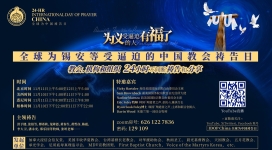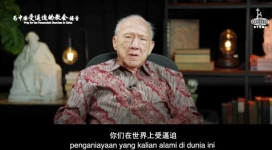
"Truth is by nature exclusive." So philosopher, teacher, and apologist Ravi Zacharias notes. The statement is at once profound and simplistic.
The American culture is steeped in a deluge of thinking of a fabled culture of tolerance. Just this week, American pop singer and celebrity Katy Perry admonished the public to embrace a tolerance transcending division of all kinds. The presumed thinking is a resulting sort of utopia; that is, a society in which all views are equally regarded and accepted.
The law of non-contradiction is elementary logic, after all. Truth cannot simultaneously exist along with its contradiction. Even science teaches the repellent nature of opposite forces. The major error in the seeming vision of an encompassing, global peace is that one major axiom is overlooked: that is, that every belief system contains an element of isolation. And, while most will likely point to Christianity as a singular example of exclusivity, Zacharias assures his readers of the exclusive tenets of the faith of Islam:
"Islam, as you know, is very clearly an exclusive claim to God. A Muslim will never tell you that it doesn’t matter what you believe or that all religions are true."
Moreover, Dr. Zacharias directs to the opposing beliefs within the Hindu and Buddhist religions:
"Hinduism, for example, is often represented as being the most tolerant and accepting of other faiths. That is just not true. All Hindus believe in two fundamental, uncompromising doctrines—the Law of Karma, and the belief in reincarnation. These will not be surrendered. In fact, Buddhism was born out of the rejection of two other very dogmatic claims of Hinduism. Buddha rejected the authority of the vedas and the caste system of Hinduism. The issue here is not who was right or wrong. The truth is that they were systemically different—both claiming rightness."
RZIM Ministries adds to rudimentary logic in asserting that "everything cannot be true":
"It is the very nature of truth that presents us with this reality. Everything cannot be true. If everything is true, then nothing is false. And if nothing is false then it would also be true to say everything is false. We cannot have it both ways. One should not be surprised at the claims of exclusivity.The reality is that even those who deny truth’s exclusivity, in effect, exclude those who do not deny it. The truth quickly emerges."
On a final note, Ravi consummates his point by reveling in the "uniqueness" of Christ:
"Christ is either the immeasurable God or one dreadfully lost. Apply the tests of truth to the person and the message of Jesus Christ. You see not only his exclusivity, but also his uniqueness."







